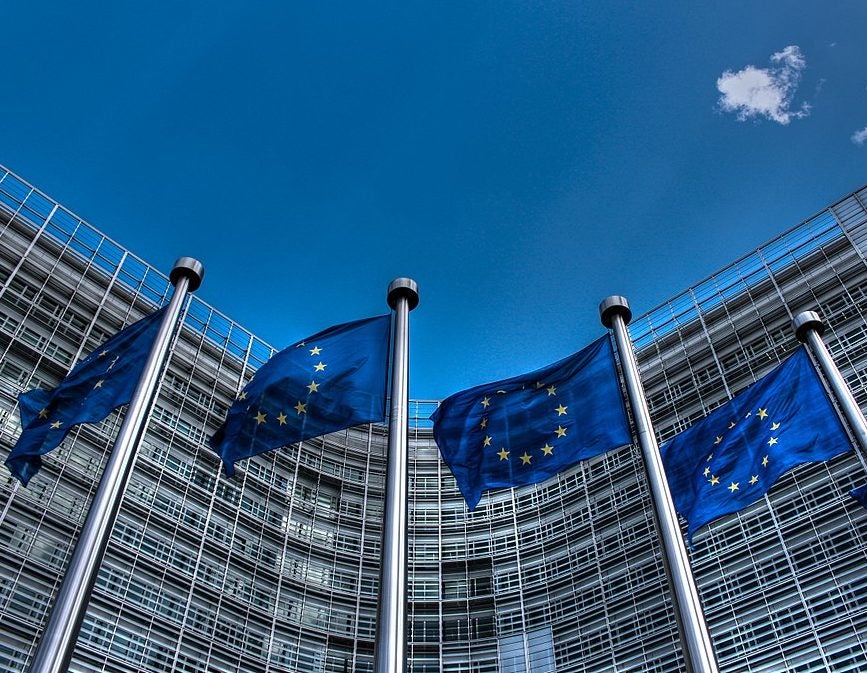
MEPs have voted in favour of amendments to copyright reform which could shake up the way news content is used online and force tech giants like Google and Facebook to share revenues with journalists.
News Media Europe, which represents more than 2,000 news brands across the continent, said the European Parliament’s decision to adopt the copyright changes would “help secure a more sustainable and digital future for Europe’s news media industry”.
However critics like the Computer and Communications Industry Association have said it would “undermine free expression online and access to information”.
MEPs voted by 438 to 226, with 39 abstentions, to approve amendments on the copyright reform proposals first tabled by the European Commission in 2016.
Negotiations between the EU Parliament, the EU Commission and the EU Council will now begin and a final outcome is expected by the end of the year.
If the “publishers’ right” amendments are approved, online platforms and aggregators from Facebook to Google News must pay rights holders such as journalists and artists for any material used, making them liable for copyright infringements.
The text specifically states journalists themselves, and not just their publishers, must benefit from this remuneration.
Article 11, known as the “link tax”, covers snippets and previews of articles, but excludes hyperlinks accompanied by “individual words” to describe them.
Small and micro-platforms, plus Wikipedia and other non-commercial or open-source platforms, are exempt from the legislation to counter freedom of expression fears.
Article 13 requires sites like Youtube and Google to actively police content to ensure it does not breach copyright laws, moving away from the existing “notice and takedown” method of dealing with offending material.
MEPs agreed any action taken by platforms to check uploads do not breach copyright rules must be designed in a way that avoids catching “non-infringing works”, with rapid redress systems operated by staff so that complaints can be lodged when material is wrongly taken down.
This would avoid “unfairly hampering the freedom of expression that has come to define the internet”, the European Parliament said in a statement.
German MEP Axel Voss, who led the proposals, said: “I am very glad that despite the very strong lobbying campaign by the internet giants, there is now a majority in the full house backing the need to protect the principle of fair pay for European creatives.
“There has been much heated debate around this directive and I believe that Parliament has listened carefully to the concerns raised. Thus, we have addressed concerns raised about innovation by excluding small and micro platforms or aggregators from the scope.
“I am convinced that once the dust has settled, the internet will be as free as it is today, creators and journalists will be earning a fairer share of the revenues generated by their works, and we will be wondering what all the fuss was about.”
The European Publishers Council said in a statement: “This reform is not just about the modernisation of copyright but about the fundamental function of our democracies.
“Today the European parliamentarians prove they value the European independent press by voting for a publishers’ right that will help ensure the sustainability of the European press sector.”
Wout van Wijk, executive director at News Media Europe, added: “We need a publishers’ right to protect the hundreds of thousands of jobs in Europe’s news media sector and, in particular, to protect the future of professional journalism and its role in facilitating the democratic debate.”
The European Magazine Media Association called today a “great day for the independent press and for democracy,” saying the legislation was a case of modernisation without stifling online competition.
In a statement today, a spokesperson reinforced Google’s commitment to working with news publishers, despite fears the new legislation could lead it to effectively boycott publishers who charge licensing fees.
They said: “People want access to quality news and creative content online.
“We’ve always said that more innovation and collaboration are the best way to achieve a sustainable future for the European news and creative sectors, and we’re committed to continued close partnership with these industries.”
Facebook did not respond to a request for comment today, but has previously said the proposals could have “serious, unintended consequences for an open and creative internet”.
Picture: Wikimedia Commons
Email pged@pressgazette.co.uk to point out mistakes, provide story tips or send in a letter for publication on our "Letters Page" blog
